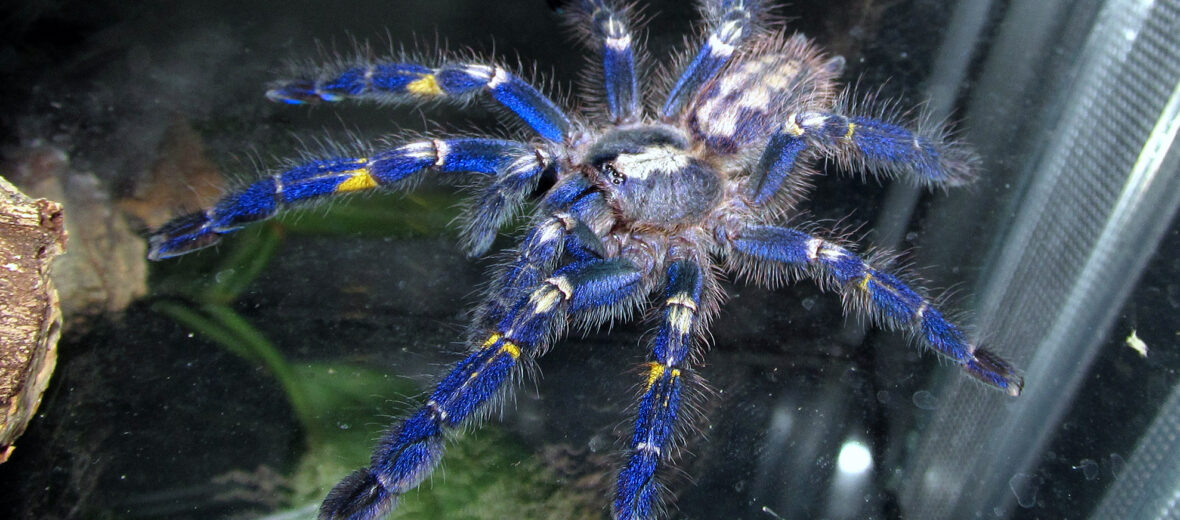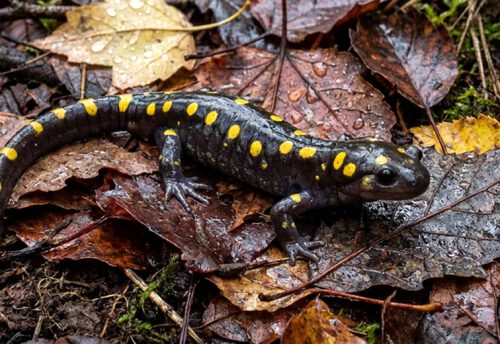
The peacock tarantula is an Old World species (hailing from Africa or Asia). They hail only from a 39 square mile reserve forest in Jharkand, West Bengal, in India. They prefer a humid forest habitat. Unfortunately, their habitat is constantly being encroached on. They face the threats of habitat destruction at the hands of logging and over collection of plants and trees, for firewood; hunting; trapping; over-collection for the pet trade; war; and civil unrest. The IUCN lists these beautiful tarantulas as Critically Endangered. Their population is also decreasing.
First the Stats…
Scientific name: Poecilotheria metallica
Weight: Up to 1+ ounce
Length: Up to an 8 inch legspan
Lifespan: Up to 15 years
Now on to the Facts!
1.) These tarantulas are nocturnal (active at night).
2.) The peacock tarantula is strictly arboreal (spends its life in trees).
3.) Their prey consists of various flying insects.
4.) Being generally skittish, these arachnids will usually flee at the fist sign of danger.
5.) They are also photosensitive (sensitive to light).
But wait, there’s more on the peacock tarantula!
6.) If cornered with no escape route, they will rear up and can & will bite.
7.) While there have been no recorded deaths from their bite, these arachnids are considered medically significant. Their bite causes heart-rate increase accompanied by headache, sweating, intense pain, cramping, and/or swelling of the bite area.
Did you know…?
The fangs of the peacock tarantula measure up to .75 inch!
8.) The effects of a wet bite (a bite that delivers venom) can be felt for up to a week, and in some instances for months!
9.) Most bites delivered to handlers are dry bites though. A dry bite is a bite delivered without venom.
10.) Other common names are Gooty sapphire ornamental tree spider, Gooty tarantula, Gooty sapphire, metallic tarantula, and peacock parachute spider.
But wait, there’s still more on the peacock tarantula!
11.) These tarantulas have been kept in captivity for over 10 years.
12.) They fetch a steep price in the United States of around $500+. Slings (baby spiders) can go for $100 – $200.
13.) Peacock tarantulas are agile, fast, and defensive. They also won’t hesitate to bite.
14.) This species is also fast growing, with females growing larger and living longer than males.
Now a Short Peacock Tarantula Video!
Be sure to share & comment below! Also, check out the Critter Science YouTube channel. Videos added regularly!
Want to suggest a critter for me to write about? Let me know here.
Some source material acquired from: Wikipedia & IUCN
Photo credit: Micha L. Rieser



